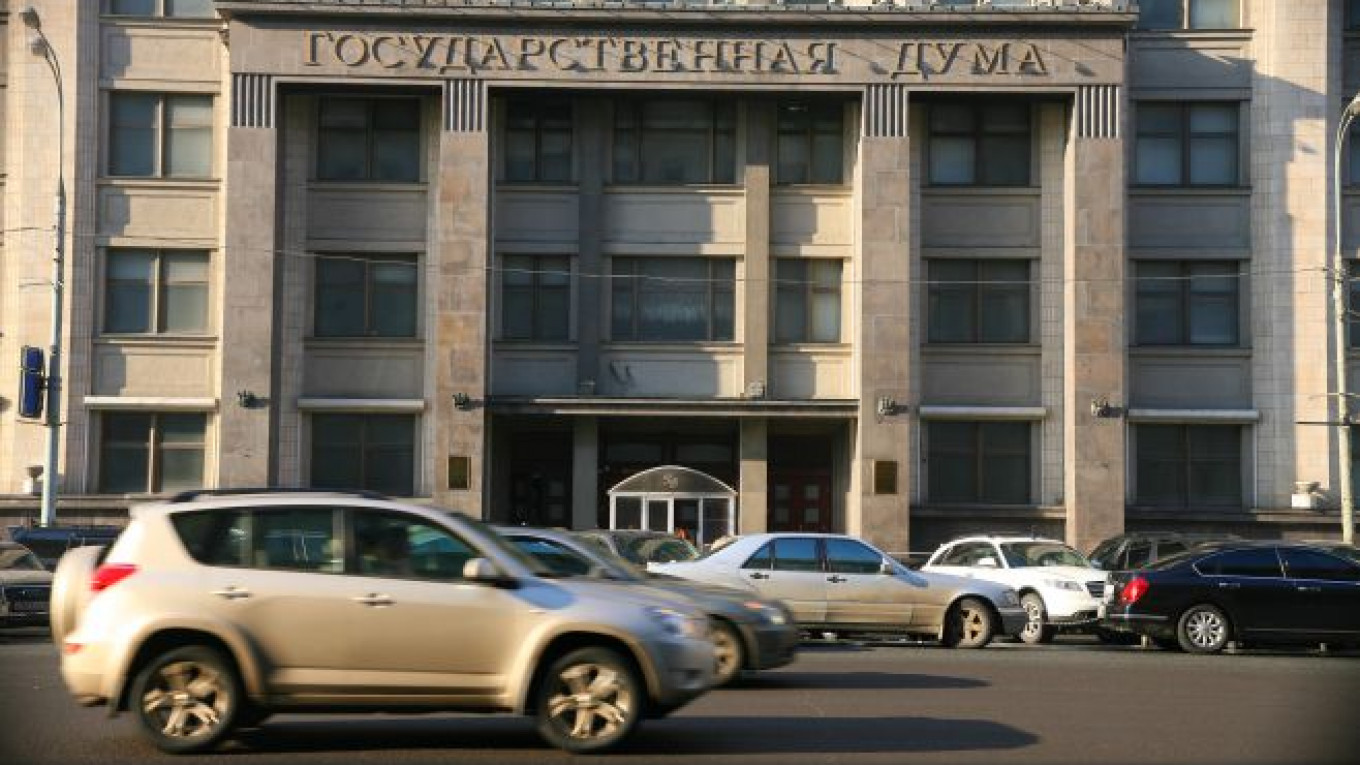The State Duma on Friday passed legislation allowing Russian banks to pass information on their U.S. clients to the U.S. tax service, as demanded by FATCA, a law that drags banks around the world into the U.S. fight against tax evasion.
But lawmakers were not keen to bend over backwards for the U.S. Under the legislation, authorities will be able to veto the transfer of information to the U.S., and banks outside Russia will be expected to return the favor and supply information on Russian account holders to the Russian tax service, Interfax reported Friday.
The Foreign Account Tax Compliance Act, or FATCA, was passed in 2010 in a bid to crack down on U.S. tax evasion. When it comes into force on July 1, the law will require foreign banks to provide information on the accounts of U.S. taxpayers to the country's tax service, the IRS — with the first filing no later than March 31, 2015 — and act as tax agents by withholding money on behalf of U.S. authorities. Banks that do not cooperate with the law will face financial penalties on their U.S.-based income.
Russian law currently does not allow banks to do what FATCA requires. A compliance mechanism between Russia and the U.S. was supposed to be worked out at the intergovernmental level, but the U.S. quit negotiations after Russia annexed Crimea from Ukraine in March, leaving legislators scrambling to find a way to save Russian banks from being penalized by FATCA when it arrives.
The legislation approved by the Duma on Friday — which now awaits the signature of President Vladimir Putin before becoming law — gives financial institutions the right to pass information to foreign tax authorities, but only if the foreign taxpayer gives their permission for such a transfer. The law also allows banks to drop clients who refuse to disclose the necessary information and permit its transfer.
The right to drop clients is in fact already on the books, and provides the simplest way for banks to avoid the FATCA headache. VTB, Russia's second-largest banking group, decided earlier this month to "phase out" business with its 2,000 U.S. taxpayer clients to minimize risks. When banks send information, the U.S. tax service will not be its only recipient; the legislation demands that the Central Bank, tax service and market watchdog, Rosfinmonitoring, all receive a copy as well — 10 days before the information is sent across the border. Rosfinmonitoring has the right to block the transfer of information if it sees fit.
The law also contains Russia's answer to FATCA: foreign banks located outside Russia will be obliged to provide information about Russian account holders, both individuals and legal entities, to the Russian tax service by Sept. 30 every year.
See also:
Russia Mulls 'Limitations' On Information Exchange With U.S. Under FATCA
A Message from The Moscow Times:
Dear readers,
We are facing unprecedented challenges. Russia's Prosecutor General's Office has designated The Moscow Times as an "undesirable" organization, criminalizing our work and putting our staff at risk of prosecution. This follows our earlier unjust labeling as a "foreign agent."
These actions are direct attempts to silence independent journalism in Russia. The authorities claim our work "discredits the decisions of the Russian leadership." We see things differently: we strive to provide accurate, unbiased reporting on Russia.
We, the journalists of The Moscow Times, refuse to be silenced. But to continue our work, we need your help.
Your support, no matter how small, makes a world of difference. If you can, please support us monthly starting from just $2. It's quick to set up, and every contribution makes a significant impact.
By supporting The Moscow Times, you're defending open, independent journalism in the face of repression. Thank you for standing with us.
Remind me later.


